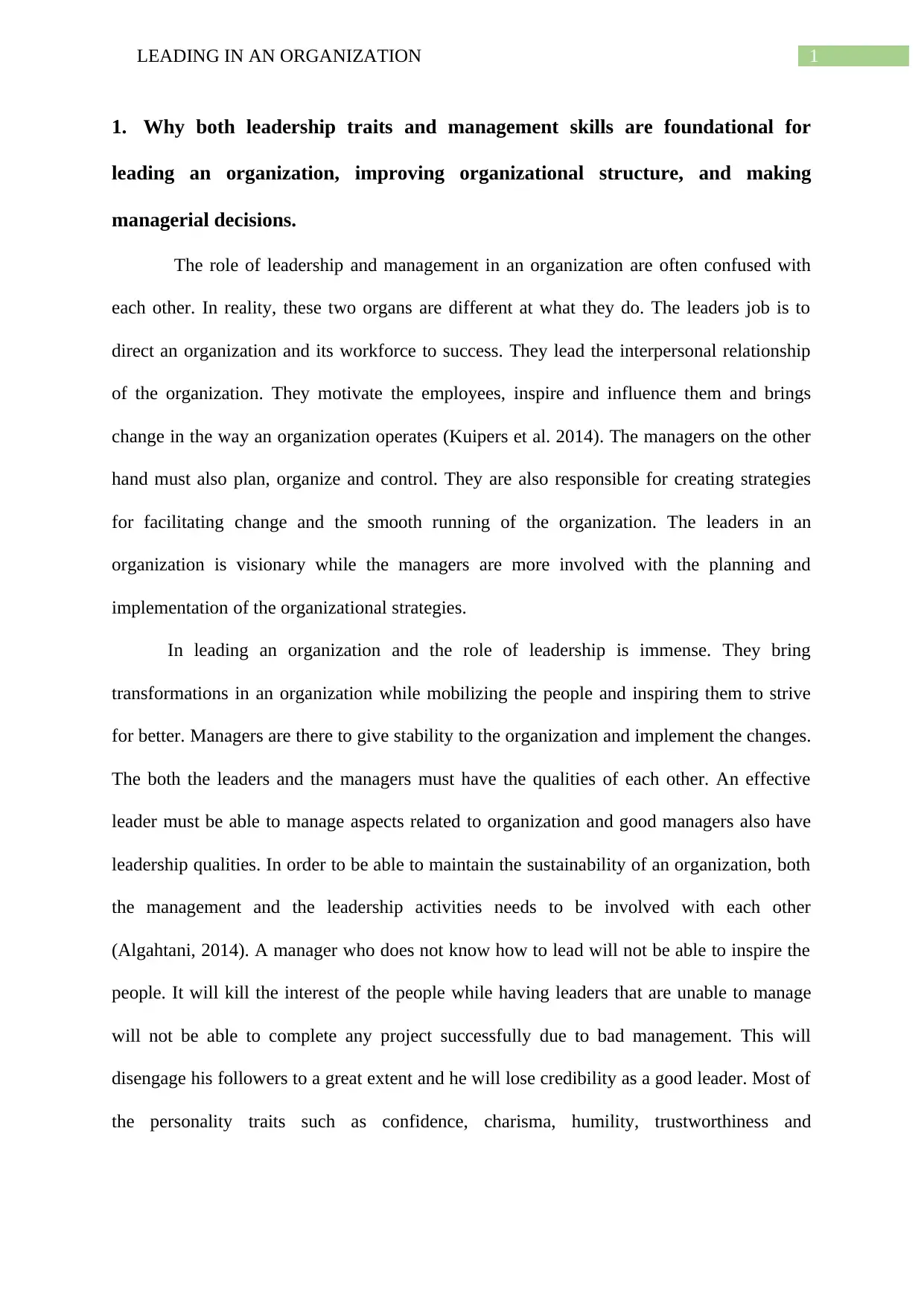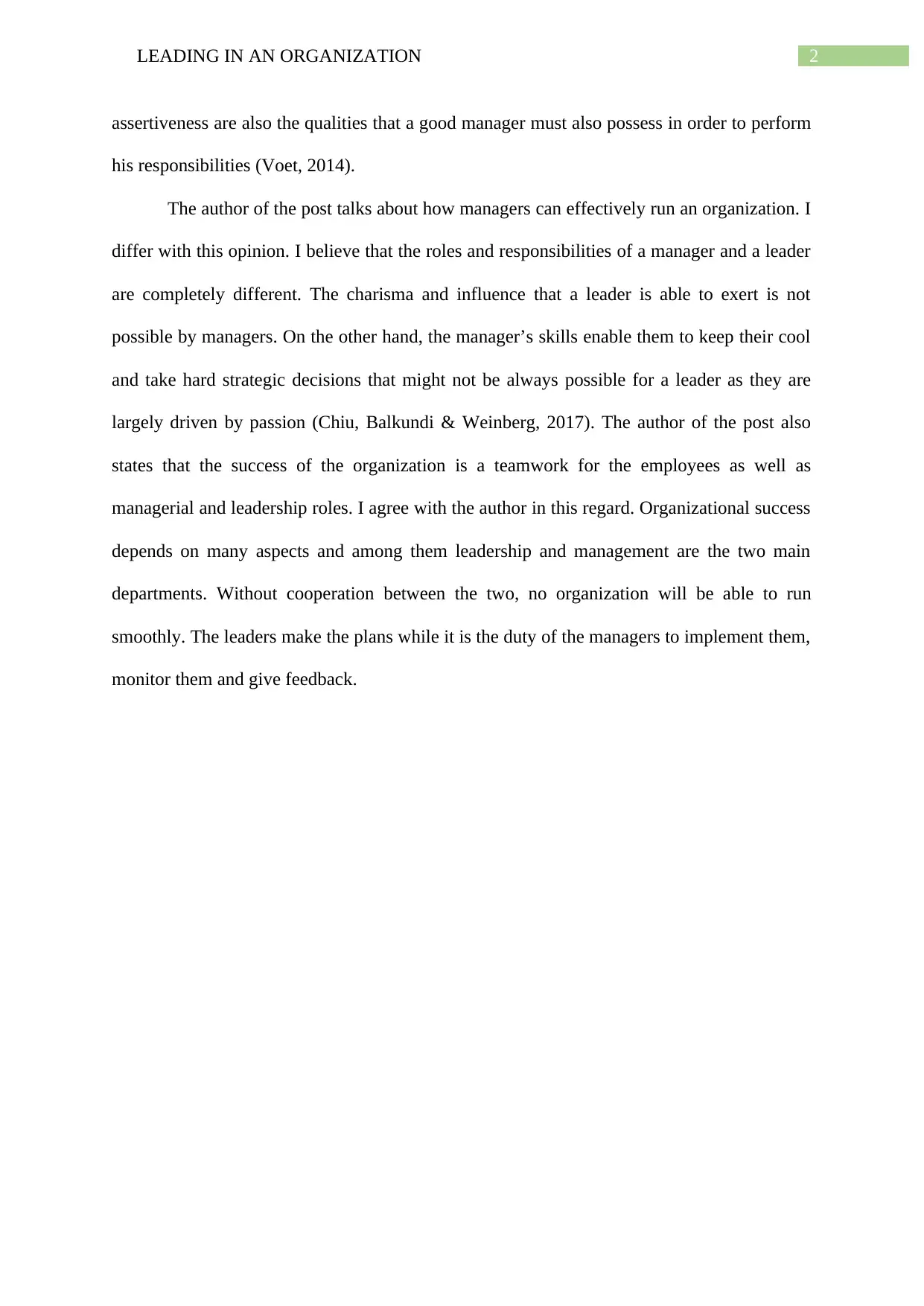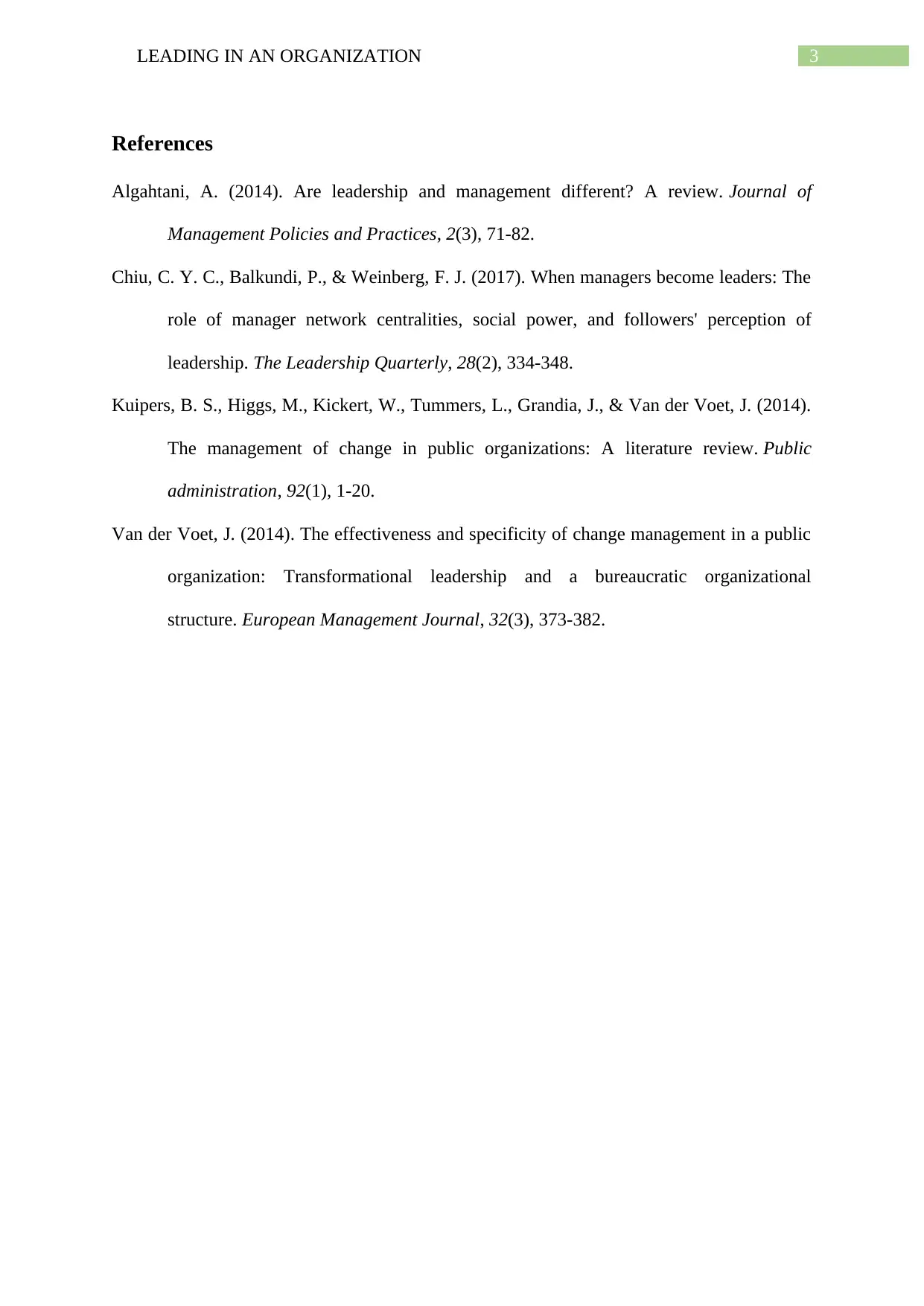University Discussion: Leading in an Organization, Leadership Skills
VerifiedAdded on 2022/09/18
|4
|779
|19
Discussion Board Post
AI Summary
This discussion post, authored by a student, delves into the critical interplay between leadership and management within an organizational context. The student highlights the distinct yet complementary roles of leaders, who inspire and drive change, and managers, who focus on planning, organization, and control. The post argues that both leadership traits and management skills are foundational for organizational success, emphasizing the importance of leaders possessing managerial capabilities and vice versa. The author agrees with the notion that the success of an organization depends on teamwork between employees, managers, and leaders. Furthermore, the post references several academic sources to support the arguments presented. The student differentiates the roles of managers and leaders, while also acknowledging that both sets of skills are important for the successful operation of an organization. The post concludes by emphasizing the importance of both management and leadership for organizational sustainability and smooth operations.
1 out of 4











![[object Object]](/_next/static/media/star-bottom.7253800d.svg)